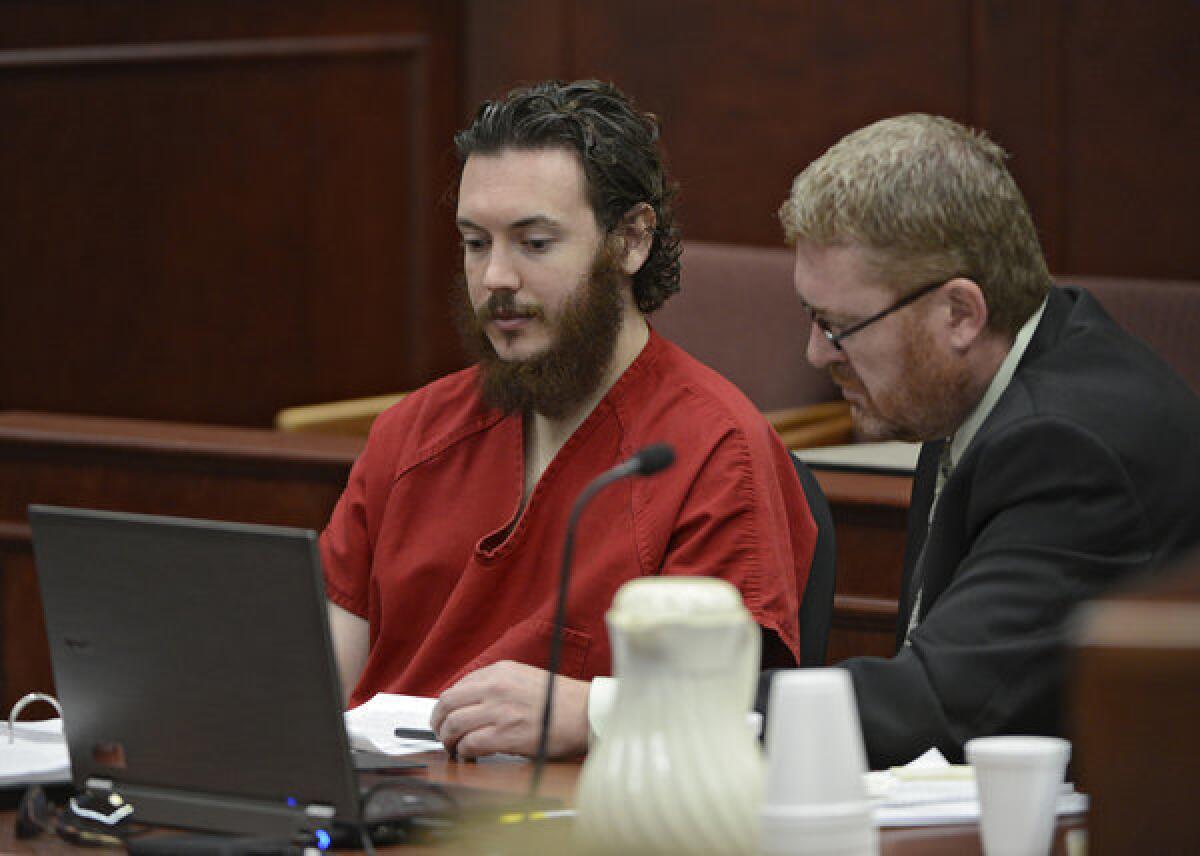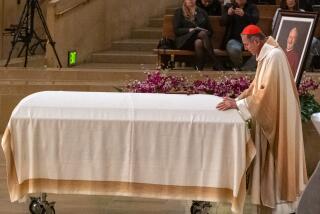James Holmes’ attorneys seek to attend mental exam

CENTENNIAL, Colo. — The mental state of accused theater gunman James E. Holmes continues to take center stage as he heads toward trial, with his attorneys and a mental health expert wrangling over a key question:
Should Holmes’ attorneys be present when he undergoes an examination at a state psychiatric hospital?
William May, superintendent at Colorado Mental Health Institute at Pueblo, wrote in a letter to the judge that the presence of Holmes’ lawyers could “compromise the validity of test results obtained during the course of an examination, and by extension, may compromise the reliability or validity of the results of an overall sanity examination.”
Holmes, 25, is suspected of unleashing last summer’s Aurora movie theater massacre. He will be sent to the Pueblo facility, a state-operated in-patient psychiatric hospital, in coming weeks to undergo rigorous testing to determine his mental condition.
Last week, District Judge Carlos Samour Jr. ordered Holmes to Pueblo after accepting his revised plea of not guilty by reason of insanity.
Holmes faces 166 charges of first-degree murder, attempted murder and weapons charges in connection with the July 20 shooting rampage that left 12 dead and 70 injured. If he is convicted, he could face the death penalty.
But if he is found to be insane or suffer from a mental defect, he cannot be put to death.
Holmes’ defense attorneys asked in a motion last week to be allowed to be present during the exam “in order to advise Mr. Holmes about how to proceed during the examination and to ensure his constitutional rights are protected.”
That request prompted the objection from May. In a letter to Samour on Monday, he said there is a “risk that defense counsel would intentionally or inadvertently coach Mr. Holmes between evaluation sessions.”
May also warned that “third-party observers” could influence Holmes on which questions he should answer, which would alter the results.
Whether Holmes answers questions goes to the heart of a previous defense challenge of the constitutionality of Colorado’s insanity defense laws.
Holmes’ lawyers have argued that under the current law if their client does not “cooperate” with doctors during the exam — which could include not answering questions — it could be held against him during the sentencing phase of trial and restrict his ability to introduce mitigating testimony about his mental condition.
Samour upheld the constitutionality of the state’s laws. He also said, however, that if problems arise during the exam, he could revisit the issue.
Although it is unclear how long the evaluation will take, May indicated in his letter that a forensic psychiatrist has already been chosen. It may also be necessary to involve a psychiatrist, psychologist and neuropsychologist, he wrote.
Samour has not yet ruled on the defense request to be present at the exam.
On Tuesday the judge ruled that Holmes can wear street clothes in court and that prospective jurors will not be sequestered.
ALSO:
Princeton University evacuated after bomb threat
Philadelphia collapse survivor: ‘I started running for my life’
George Zimmerman trial: Jury selection grinds into second day
More to Read
Sign up for Essential California
The most important California stories and recommendations in your inbox every morning.
You may occasionally receive promotional content from the Los Angeles Times.










